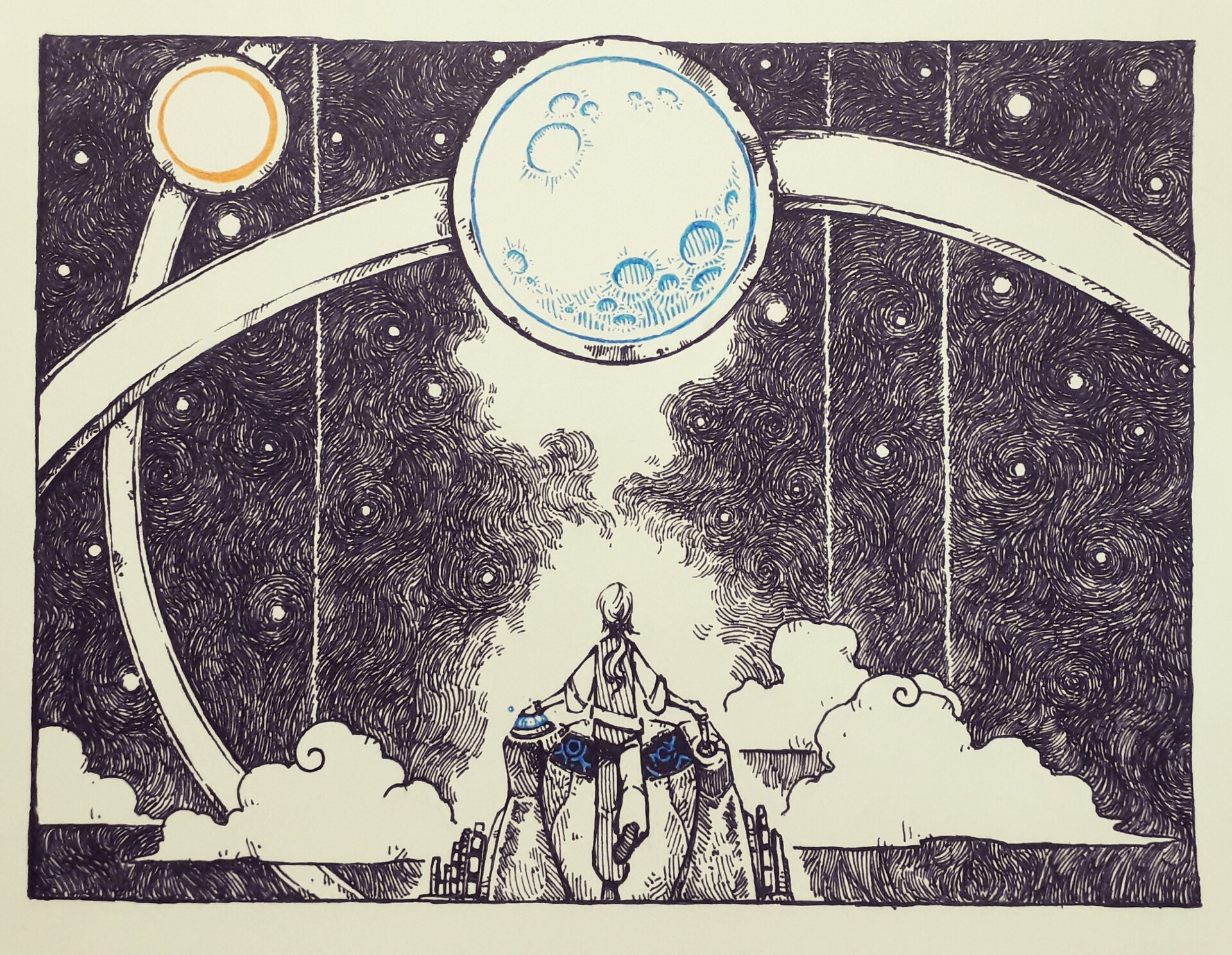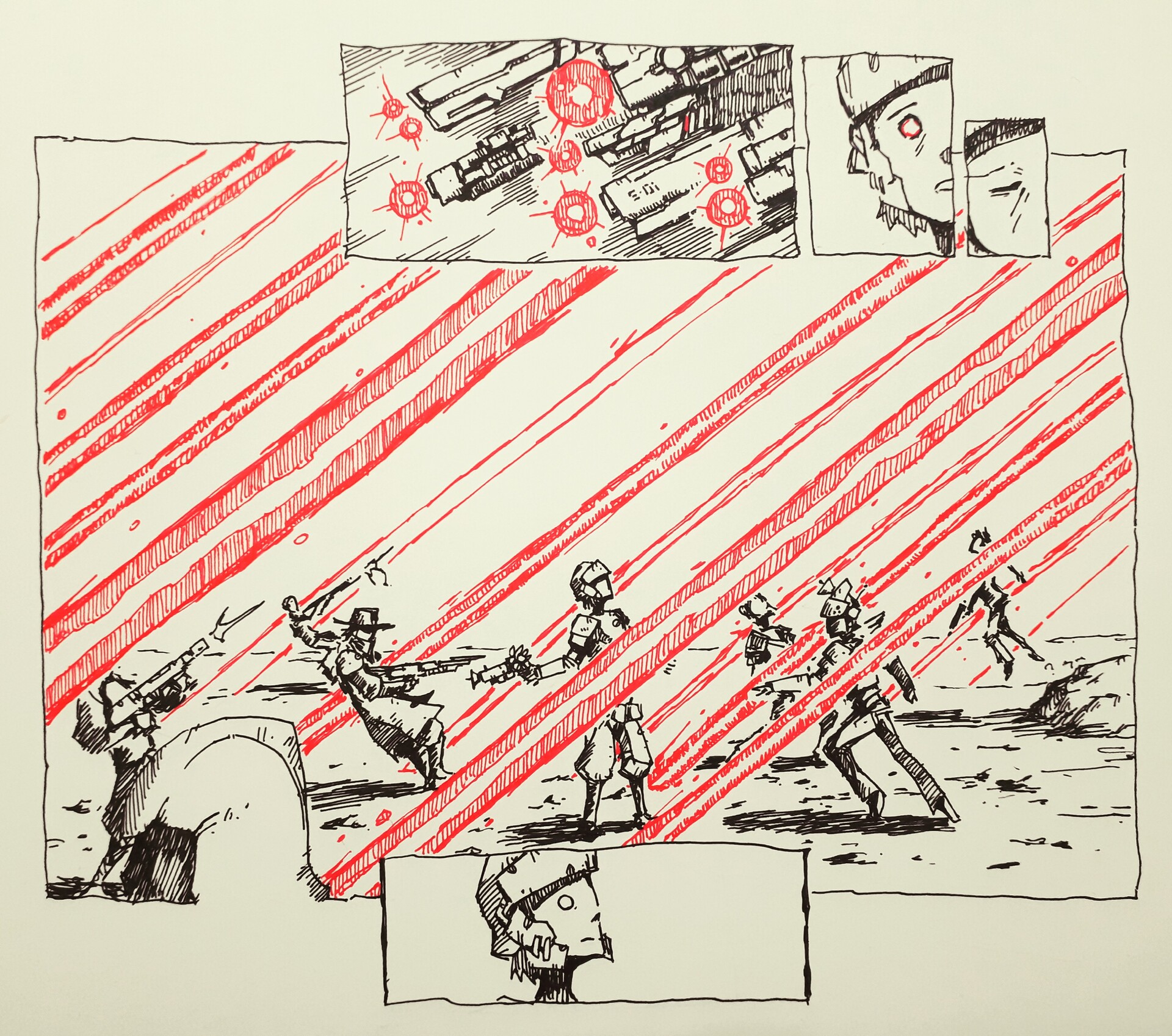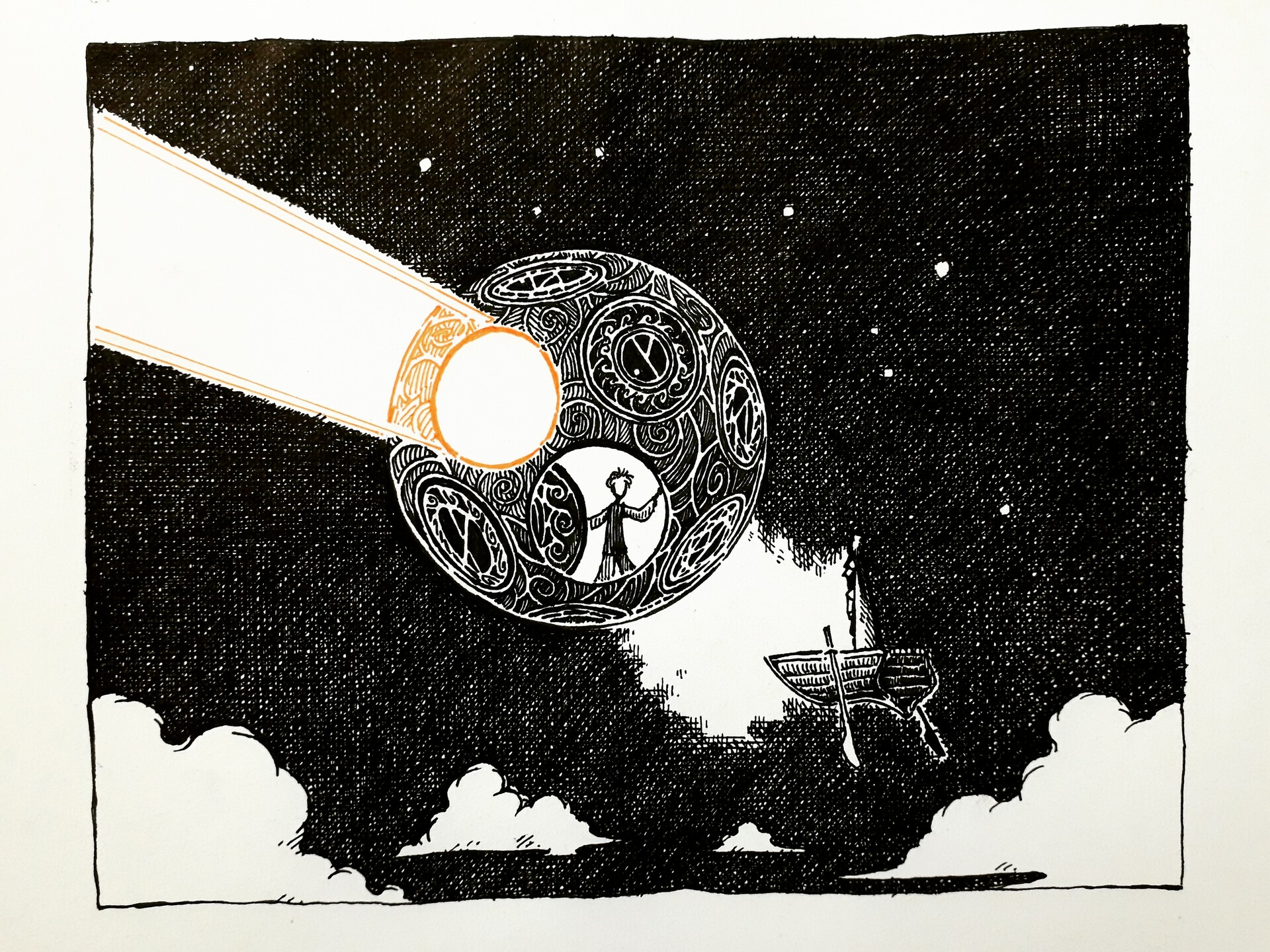 |
| The illustrious A. Shipwright. |
Okay, so, where does that leave me? Well, aside from my continued journey into the Troika!-esque expansion of weapon tables (which I plan to continue exploring, all the same), I come back to science fiction games. That brings me to Traveller and Mothership as my lodestars. Mothership is magnificent, but all of my peers don't want to play explicit sci-fi horror. Bits and doses are fine, but a game centered around paranoia, panic, and sanity in space is not their jam. Fine. Back to Traveller, then. Classic Traveller (get the starter edition here for FREE) is effectively perfect. Go ahead and download and play/run it, you won't be disappointed. That said, it behooves me to take the development of RPG theory that has taken place since 1982 and see if I can help to improve upon a winning formula. Into the Odd/Electric Bastionland (free editions on the right sidebar of Bastionland.com) is my favorite riff on old school adventure gaming. It's fantasy, with maybe a dash of industrial something thrown in. Anyone who is familiar with the OSR scene will know of these games (it's also what the brilliant Mausritter is based upon). Frankly, I think the game engine under the battery-powered Bastionland hood is just as ripe for use in sci-fi games as it is in a fantasy setting. What I hope to explore in the future is wedding ItO/EB with Traveller and finding out how we can best enjoy the offspring of such a union.
IN THE MEANTIME...
...
...
I want to take the opportunity to translate the fantastic Encounter Die (refined here, but originating here) to the (hard-ish) science fiction world. The Encounter Die is the total crutch for all of the fantasy games I run, be they 5e superheroics, B/X classic delving, or Knave/Black Hack/Into the Odd/Troika! gritty silliness. The basic idea is that rather than tracking light sources, potion and spell durations, resource consumption, and possible social or environmental triggers separately, you just slap all that stuff on a single d6 and call it a day.
Meandering Banter's take on the Encounter Die has been my mainstay referee secret weapon for a while now. In essence, he breaks down the d6 into distinct tables for dungeon delving, overland hexploration, and urban situations. I don't think it's a clean 1:1 to translate these for science fiction use, but we can get close. Intrastellar scenarios (such as moving from planet to planet in a given system without a jump) are typically mundane unless you deem additional uncertainty prudent to the scenario at hand.
Site Exploration (starships, land complexes, "dungeons")
Roll unlimited times per day, based on how rugged and estranged the party is from civilization. Also roll when no one can make up their mind as to what to do next. If there is faction or NPC activity nearby, roll just to stir things up and see what happens.
1. Encounter
2. Hint
3. Local effect (doors closing, klaxons pinging, sentry alert active, etc.)
4. Setback/existential strife
5. Glitch (device goes haywire/stops working, movement detected, etc.)
6. Panic (morale fails, NPC freaks out, resource depletion, etc.)
Sci-fi characters rely on their equipment and loadouts as much as they do on their grit and gumption. Take these away as necessary, and lean into the vacuum of space and/or isolation as a pressure point.
Overland Hexploration (planetfall and wilderness)
Roll up to three times a day, taking note of how far the party is from their ship or shelter. If the party is looking for something in particular, consider how much they need to risk to find and attain it.
1. Encounter
2. Hint
3. Weather, environmental detriment, or technilogical detriment
4. Beacon notice (distress call, comm from superiors, alert, etc.)
5. Fatigue (each point consumes an inventory slot)
6. Hidden feature
Here I am modifying for the setting but borrowing from the master post in order to drill-in on the desperation of best laid plans gone awry, despite technological advantage. Sometimes your batteries are fried and you starve.
 |
| Even more Shipwright. |
Roll once per day, or additional times if the party stirs the bees' nest of ennui and/or status quo in the given environment.
1. Riot/strike/politically-charged altercation
2. Curious and/or helpful NPC
3. Existential strife
4. Customs agent and/or annoying NPC
5. Faction agents
6. Lucky breakthrough
Future/far-future civilization is generally more bleak than our simpler times. We already see the banality of social media and detached personhood in the 21st century. Amplify that. Humans don't change, but our circumstances catalyze the worst of ourselves. We might catch a serendipitous break, but not often. Often we face the void, and it stares and stares and stares.
Jump Situations
Roll once per jump, assuming any given jump takes the party from intended Point A to Point B. Roll additional times if the party's transit requires extra time or resources to commit to their destination.
1. Warp encounter
2. Random destination
3. Life support malfunction
4. AI malfunction
5. Fatigue (each point consumes an inventory slot)
6. Advance sensor sweep
If you're traversing the in-between of hyperspace, you're betting against stacked odds that it will work out in your favor. The deep places of space are dangerous enough without having to deal with complications. Man is not meant to travel at light speed or beyond, and we must assume the risk when making the attempt. Whether you're using cryosleep, suspended animation tanks, or simply strapping in for the jump, it is a perilous pursuit that man/xenokind can barely apprehend in their frail frames of reference.
 |
| Not enough Shipwright. |
1. Life support failure
2. Sudden stop at unknown point with fuel drainage
3. Sent back in time by d6 months
4. AI malfunction
5. Space amoeba (predatory, malign intent)
6. Space whale (curious, defensive intent)
Dropping out of warp at an indeterminate point could spell disaster or spark a whole new campaign trajectory, and all of the results above suggest that the party is not where it expects to be.
If you roll an AI malfunction, roll on the following bonus table:
1. Involuntary course "correction"
2. Distress signal burst from the party's vessel
3. Intended course extended by d6 months
4. Food stores converted into psychoactive substances
5. Mechanical vivisection of NPC crewmate
6. All your base are belong to us (AI mutiny)
Let's be honest. You go to sleep for X months and hope to wake up, safe and sound, at some distant point. The computer maintains normalcy during your unconsciousness and/or best intentions. Grim hilarity ensues.
No comments:
Post a Comment